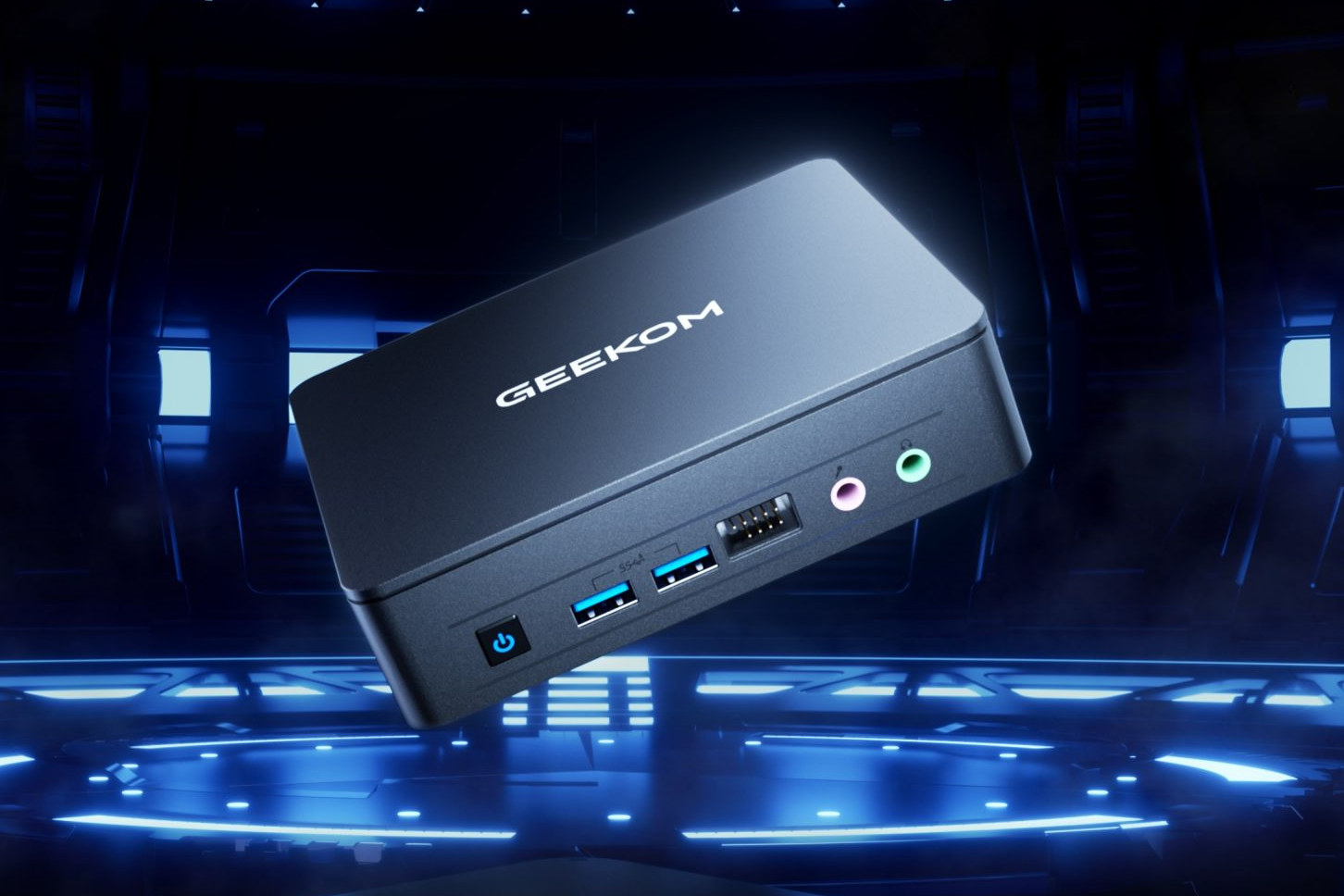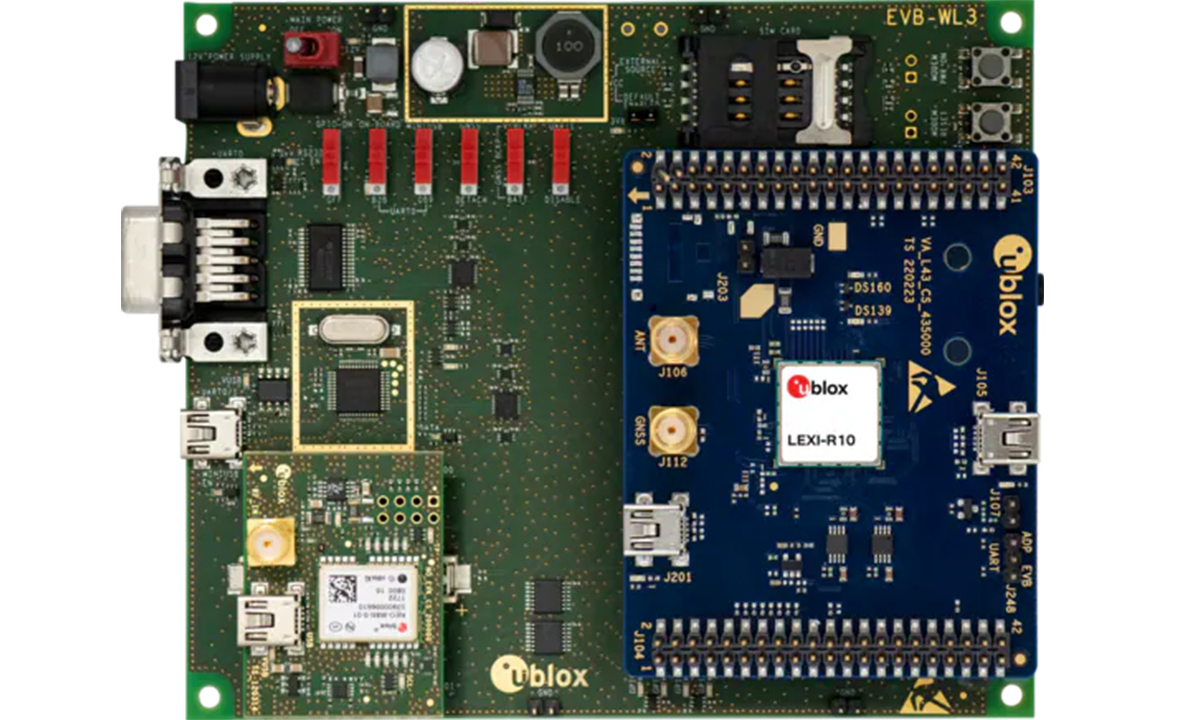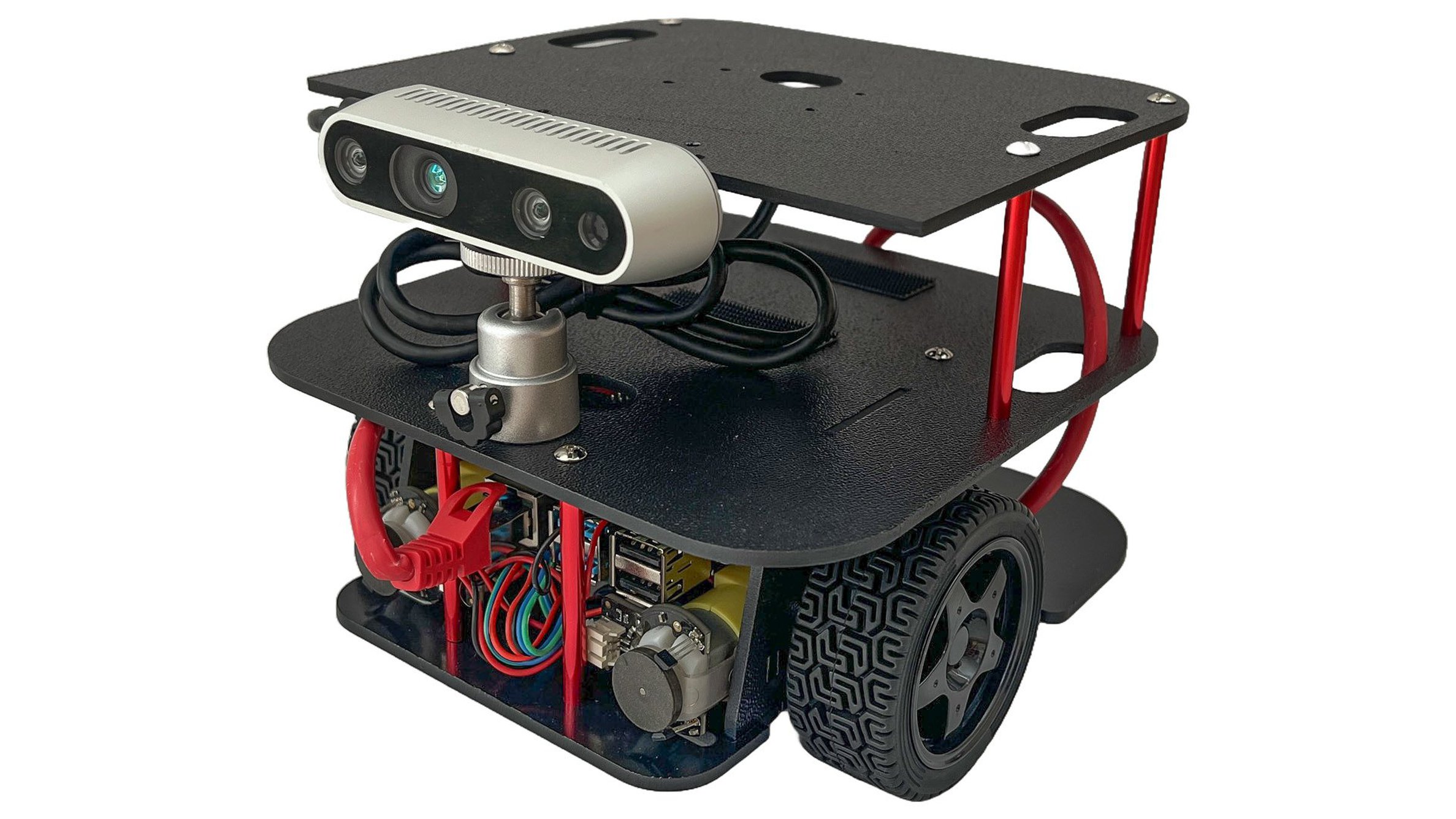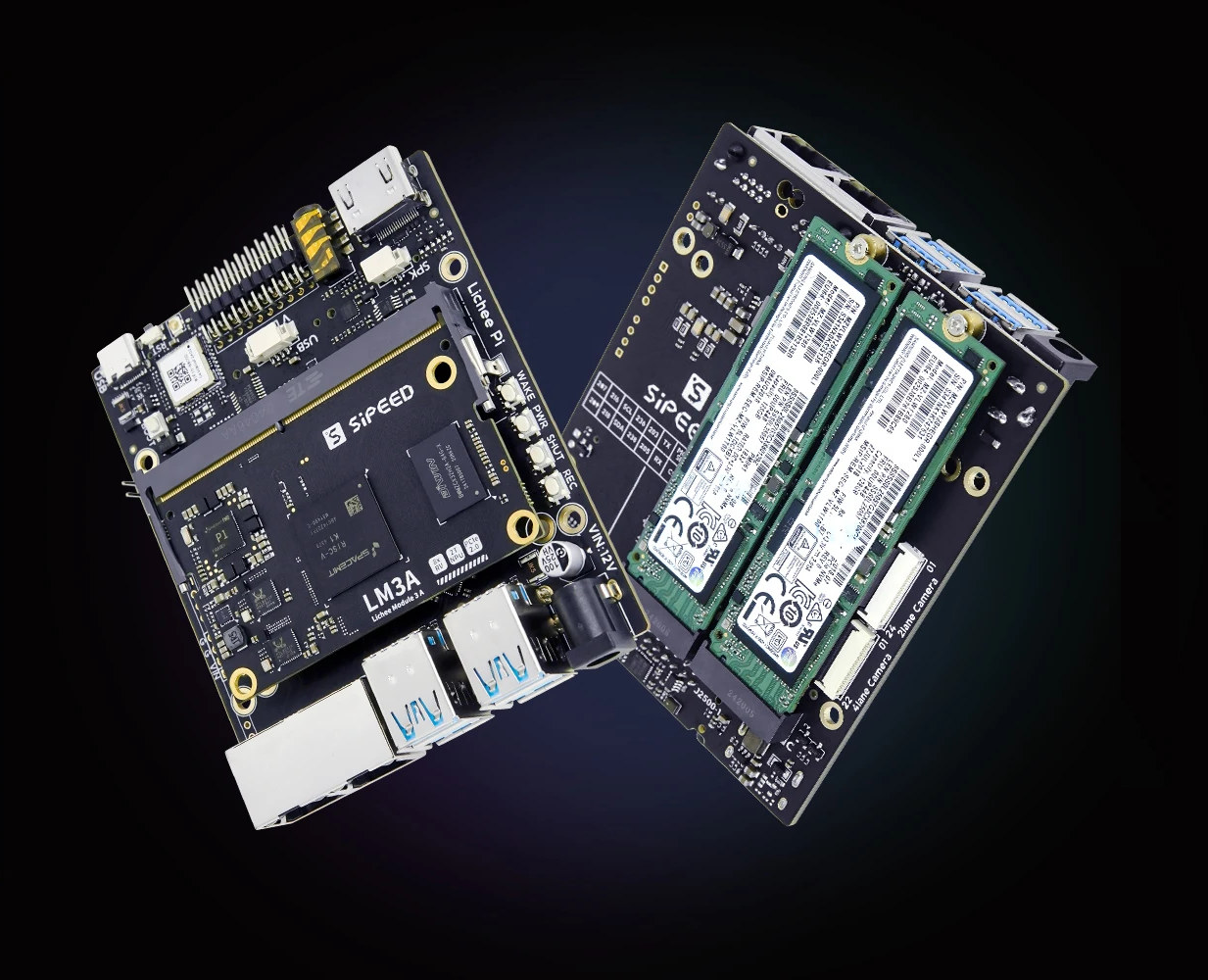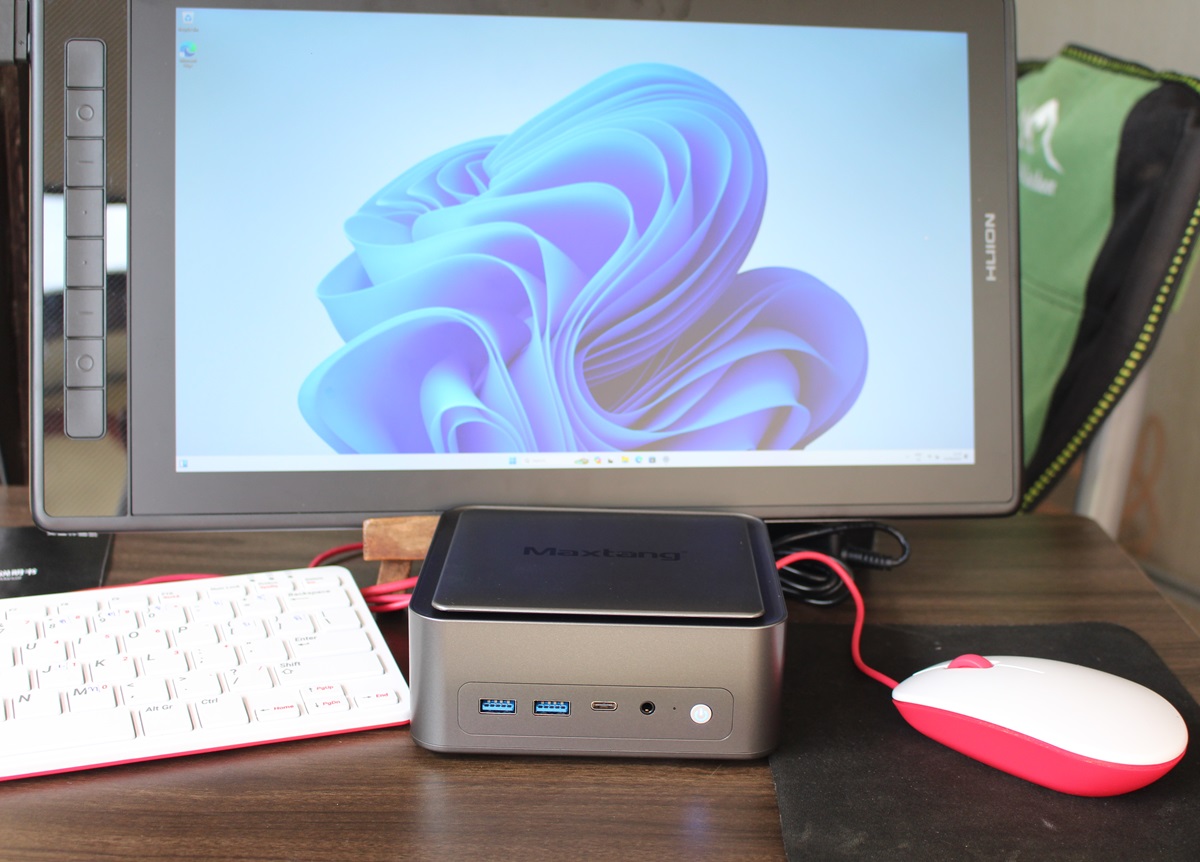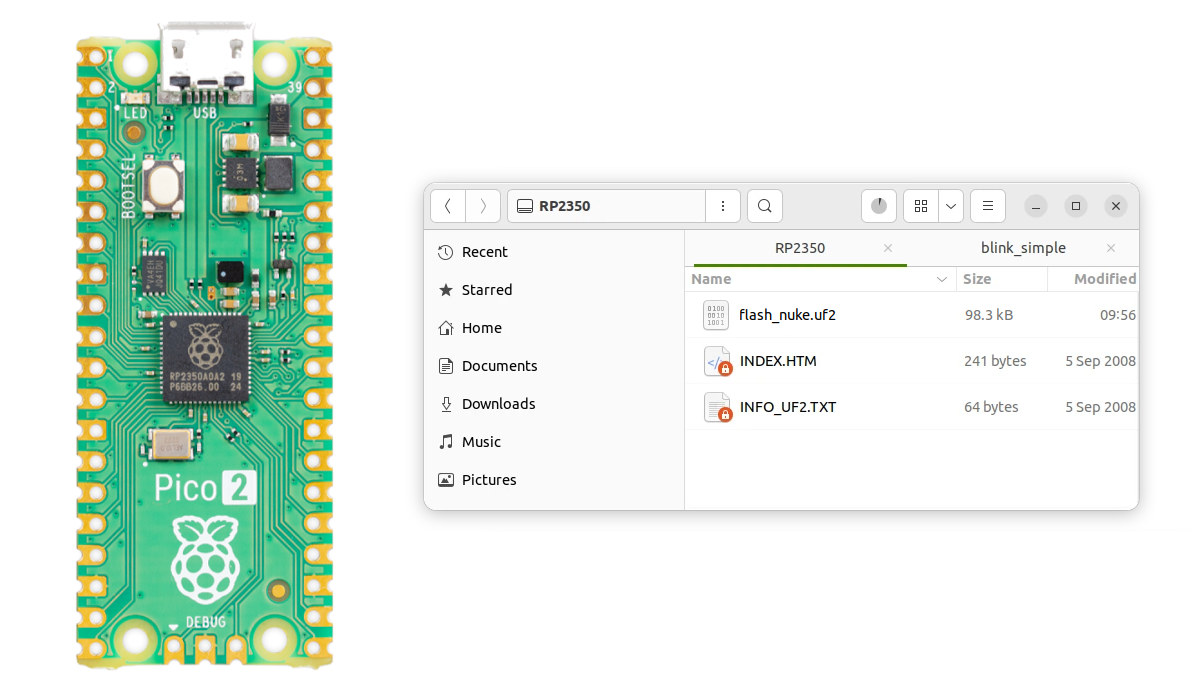GEEKOM Mini Air12 Lite is yet another Intel Processor N100 mini PC whose main differentiating feature is a 9-pin expansion header accessible from the outside for expansion. I initially thought it would be similar to having Raspberry Pi 5 SBC in an enclosure like the Pironman 5, but as we’ll see below it may not exactly be the case. As its name implies, it’s also an evolution of the Mini Air12 mini PC with a lower price due to some cost-cutting. The Mini Air 12 Lite notably ships with 8GB DDR4-3200 and a 256GB NVMe SSD, instead of the 16GB DDR5-4800 and a 512GB NVMe SSD for its older sibling. The computer also features HDMI and DP ports for dual display setups, gigabit Ethernet and WiFi 5 connectivity, an audio jack, and five USB 3.2/2.0 ports. GEEKOM Mini Air12 Lite specifications: SoC – Intel Processor N100 Alder Lake-N quad-core/quad-thread processor […]
u-blox EVK-LEXI-R10 evaluation kits feature LEXI-R10 LTE Cat 1bis and MAX-M10S GNSS modules for Cellular IoT and GPS connectivity
u-blox has developed the EVK-LEXI-R10 evaluation kits to help engineers test and evaluate their LEXI-R10 LTE Cat 1bis cellular modules. These compact modules support data speeds of up to 10Mbit/s for downloads and 5Mbit/s for uploads, all while using very little power. They also include built-in Wi-Fi to scan indoor hotspots and work with u-blox’s CellLocate service for both indoor and outdoor tracking. Available in regional variants, the boards and kits are certified by major mobile operators, including those in the US. The LEXI-R10 series by u-blox features the world’s smallest LTE Cat 1bis modules in the LEXI LGA form factor. The EVK-R10 kits simplify the evaluation of these multi-band LTE Cat 1bis modules. The EVK-R10401D kit supports the LEXI-R10401D module for North American operations, the EVK-R10801D kit supports the LEXI-R10801D module for Europe, Middle East, Africa, and Asia-Pacific, and the EVK-LEXI-R10001D kit supports the LEXI-R10001D module with global coverage. […]
MIKRIK V2 Robot Car is an entry-level, open-source robotics kit built for ROS and 3D computer vision
The MIKRIK V2 Robot Car is an open-source robotics kit for studying 3D computer vision and is compatible with both ROS1 and ROS2 software suites. The two-wheel-drive robot is powered by a Raspberry Pi 4 Model B (as a ROS1 differential drive controller) and a more powerful x86 or ARM single-board computer that can support ROS2 applications like the LattePanda Delta 3, Intel NUC, or NVIDIA Jetson Nano. The robot car uses the Intel Realsense D435i camera for 3D depth vision. It is a less expensive alternative to the iRobot Create, Husarion, and TurtleBot, and compares favorably with NVIDIA’s open-source JetBot AI robot platform. The robot car’s chassis is squared-off and made from shatterproof flex plastic. The CAD files are available on GitHub for self-assembly using a laser cutter and a 3D printer. The assembly and setup process is documented on the Hackster project page. On the software end, it […]
LicheePi 3A – A SpacemIT K1 RISC-V development board with SoM and carrier board
Sipeed LicheePi 3A is a development board comprised of the LM3A system-on-module based on SpacemIT K1 octa-core RISC-V SoC and the same baseboard as found in the earlier LicheePi 4A equipped with a T-Head TH1520 quad-core RISC-V “LM4A” system-on-module instead. The LicheePi 3A is currently offered with a 32GB eMMC flash and 8GB or 16GB LPDDR4x memory. The carrier board provides a microSD card, two M.2 PCIe sockets for storage or other expansion, two gigabit Ethernet ports, a WiFi 6 and Bluetooth 5.2 module, HDMI and MIPI DSI display interfaces, two MIPI CSI camera interfaces, four USB 3.0 ports, and a 20-pin GPIO header for expansion. Sipeed LicheePi 3A specifications: Sipeed LM3A SoM SoC – SpacemiT K1 CPU – 8-core X60 RISC-V processor @ 1.6 GHz GPU – Imagination IMG BXE-2-32 with support for OpenGL ES3.2, Vulkan 1.2, OpenCL 3.0; 20 GFLOPS VPU – H.265 and H.264 1080p60 decoding/encoding NPU […]
Bluetooth 6.0 features accurate two-way ranging using Channel Sounding, latency reduction, improved scanning efficiency, and more
The Bluetooth Special Interest Group (SIG) has just announced the release of the Bluetooth 6.0 Core Specification with features and feature enhancements that include Bluetooth Channel Sounding for two-way ranging between BLE devices, decision-based advertising filtering and monitoring advertisers to improve device scanning efficiency, an enhancement to the Isochronous Adaptation Layer (ISOAL) for lower latency and higher reliability, the LL extended feature set, and a frame space update for throughput optimization. Bluetooth 5.4 was released as a minor update mostly adding electronic shelf label (ESL) support in February 2023, or about 18 months ago, but Bluetooth 6.0 is a major update with the most notable feature being Bluetooth Channel Sounding to enable two-way ranging between two Bluetooth LE devices. It’s not the first time we’ve heard about “Bluetooth Channel Sounding” for distance measurements as it was implemented in WiFi 7/6 and Bluetooth 5.4 chipsets such as Synaptics SYN4382 and Broadcom […]
Android 15 source code pushed to AOSP
Android 15 will only become available on supported Pixel devices in the coming weeks, and on other phones in the next couple of months, but Google has already pushed Android 15 source code to AOSP (the Android Open-Source Project). We already documented some of the main changes in Android 15 when the first developer preview was released in February 2024. These included improvements related to privacy and security, the addition of the partial screen-sharing feature, camera and audio improvements, and some performance optimizations. You should be able to retrieve the Android 15 source code from AOSP with the following commands:
|
1 2 |
repo init --partial-clone -b android-15.0.0_r1 -u https://android.googlesource.com/platform/manifest repo sync -c -j8 |
Android 15 is based on Linux 6.6 LTS, so Android 15 SDKs from silicon vendors will likely be offered with Linux 6.6, although I can see Linux 6.1 is also an option. It’s also possible to browse Android 15 source code without downloading several GB of data to your […]
Maxtang T0-FP750 (AMD Ryzen 7 8845HS) mini PC review – Part 1: Specs, unboxing, teardown, and first boot
Maxtang T0-FP750 is a mini PC powered by an AMD Ryzen 7 8845HS octa-core/sixteen-thread SoC supporting up to 64GB 5600 MT/s dual-channel DDR5 SO-DIMM memory, equipped with two M.2 slots for up to NVMe 2280 SSDs, and an additional M.2 slot for a WiFi 6E and Bluetooth 5.2 module. The Windows 11 Pro mini computer can drive up to three displays via HDMI 2.0, USB4, and DisplayPort 1.4 connectors and offers 2.5GbE networking. Maxtang sent us a review sample of the T0-FP750 mini PC with 32GB DDR5 RAM, a 512GB M.2 SSD, and a WiFi 6E and Bluetooth 5.2 wireless module. Despite having a similar name to the earlier AMD Ryzen 7 7735HS-powered Maxtang MTN-FP750 mini PC reviewed last December, the T0-FP750 design is fairly different as we’ll see below. As usual, we’ll do a three-part review starting with the specifications, an unboxing, a teardown, and a quick first try […]
How to recover a “bricked” Raspberry Pi Pico 2 or other RP2350 board
In theory, it’s close to impossible to brick your Raspberry Pi Pico 2 or other RP2350 boards because the bootrom code (source code) is stored in the 32KB ROM of the microcontroller and is by definition “read-only memory”. But I managed to “brick” my Raspberry Pi Pico 2 the other day, and even a blinky sample would not run on the board. So I’ll explain a simple method to recover/perform a factory reset of sorts. First, let me explain what happened. My board became unusable after I ran the following command while building RISC-V Linux for RP2035 and my Pico 2 was connected to the build machine:
|
1 |
make flash-kernel |
At some point, it will copy a UF2 firmware binary designed for boards with PSRAM which the Raspberry Pi Pico 2 lacks:
|
1 |
cp build/psram-bootloader.uf2 "/media/jaufranc/RP2350"/ |
After that, I could still see the Raspberry Pi Pico 2 board as an “RP2350” drive on my computer, […]


